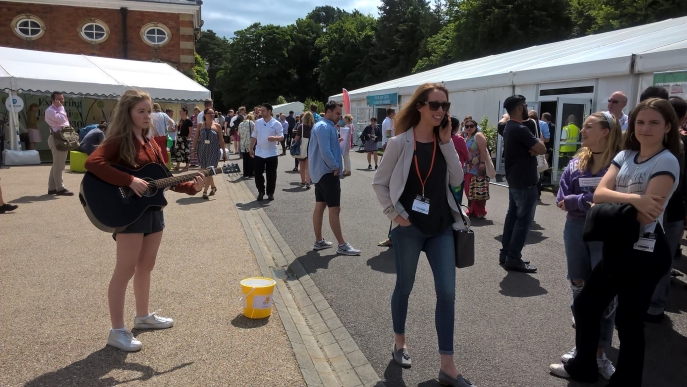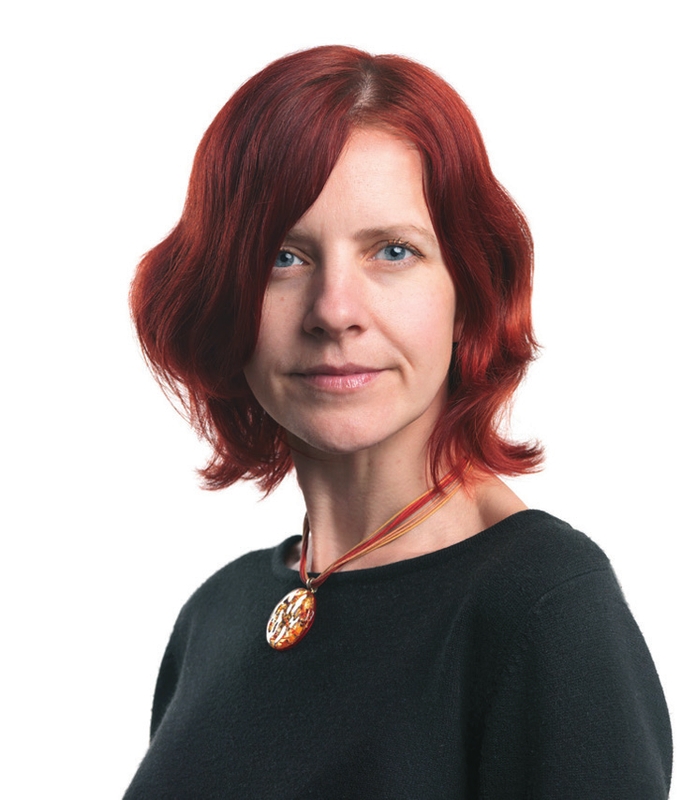Field Report – Festival of Education, Day 2, AM

What is ‘grit’, and can you teach it? That was the topic of today’s opening session, delivered by David Rogers – formerly assistant head teacher responsible for teaching and learning at Patcham High School, Brighton; co-founder of humanutopia, Carlo Missirian; and a rather splendid young man called Ryan, who had changed his life after experiencing […]

- by Helen Mulley
- Former editor of Teach Secondary magazine and award-winning podcast host

What is ‘grit’, and can you teach it?
That was the topic of today’s opening session, delivered by David Rogers – formerly assistant head teacher responsible for teaching and learning at Patcham High School, Brighton; co-founder of humanutopia, Carlo Missirian; and a rather splendid young man called Ryan, who had changed his life after experiencing the humanutopia programme as a 14-year-old and is now, at the age of 24, working with the company to help inspire others.
I wasn’t the only one to have looked at the programme and decided this would be an inspiring way to start the day. The tiny room in which the session took place was full when I arrived, and people continued to trickle in over the next 10 minutes or so, until the floor was covered with cross-legged people, paper cups of coffee, and rucksacks – which certainly helped create an authentic festival atmosphere.
Rogers described the four-year process he had been going through at Patcham High School (with humanutopia’s input) in order to define grit, identify ways to nurture it in students for whom it’s lacking, and measure the impact of this – a process that’s still continuing, despite the fact that Rogers himself was recently made redundant. This was after having agreed to speak at the Festival about his work at the school – and the fact that he did so anyway, and with undented passion and commitment, was a pretty good message about ‘grit’ in itself.
Humble and determined
Like me and many thousands of others, you may have read and been intrigued by Lucy Kellaway’s column for the Financial Times in November 2016 [paywall], in which she explained exactly why she was planning on leaving journalism to train as a teacher – and how she wanted others to join her.
The first cohort of Now Teach trainees – all with a background in the corporate world, and none of them, therefore, exactly spring chickens – are due to start their in-school training this September, including Lucy herself, who will be teaching maths at Mossbourne. She spoke with no slides, script or notes for about half an hour, then took questions, and was funny, fascinating, honest and interesting throughout. She was open about both her optimism and her concerns, equally humble and determined, and just generally a petite powerhouse of intelligent energy.
She’s slightly worried that she’ll be a ‘rubbish teacher’ – but on the evidence of what I saw today, I’d be prepared to place a large bet on her turning out to be a genuinely brilliant one.
A new Ofsted?
Then it was today’s Big One – Amanda Spielman in the main marquee. Predictably, it was a full house, but if anyone was hoping for a dramatic surprise announcement, they will have been disappointed. The Chief Inspector spoke about improvement – of Ofsted itself, as well as specific schools, and the education system generally. She observed that it would be criminally wasteful to have as much data as Ofsted has and do nothing with it but issue reports, so she has already expanded the organisation’s research function.
She went on to talk of ‘thoughtful’ inspections that look beyond the headline figures to identify and judge what is being taught and how, as well as outcomes. ‘Gaming’ the system is something she is determined to stamp out. If, for example, you’re a school that currently enters 90% of your students for the European Computer Driving Licence, you can expect some pretty searching questions from the inspectors about exactly why that choice has been made.
She’s also currently looking at repositioning ‘curriculum’ within the new inspection framework that’s planned for 2019, and accused ‘too many’ schools of sacrificing a rounded, rich education for children in favour of boosting their league table positions – although she did at least have the grace to admit that she could see why this might happen.
‘Actively promoting British values’ was also something she saw as an accountability priority. Ultimately, though, she wasn’t talking about a changed system, but rather, a culture shift in the way that system is currently used and interpreted. She wants parents and other stakeholders to look beyond an overall Ofsted judgement, inspectors to look beyond exam results, and teachers and leaders to look beyond ‘accountability hoops’.
Because, she said, the purpose of education is not merely to ensure children achieve good grades, but to “Leave the world better than we found it” – and Ofsted should be a part of helping that happen, not one of the reasons so many great educators leave the profession altogether. As rebranding exercises go, this is certainly a positive start; time will tell exactly how much of it translates into actual change for our school communities.
Booze, mice and brains
I’ll be honest here – the next session I’d marked on my planner was wholly for my own personal benefit. As the mother of two 12-year-olds, the opportunity to hear Sarah-Jane Blakemore on adolescent brain development was quite simply one I wasn’t going to miss out on.
And when she opened by saying that she also has a 12-year-old son, I took it as a sign that I was definitely supposed to be there. I learnt a lot of jolly useful stuff about risk-taking, peer influence and when learning happens best – but my favourite takeaway fact was that, according to research “Adolescent (but not adult) mice drink more alcohol when with other mice.”
You’re welcome.










